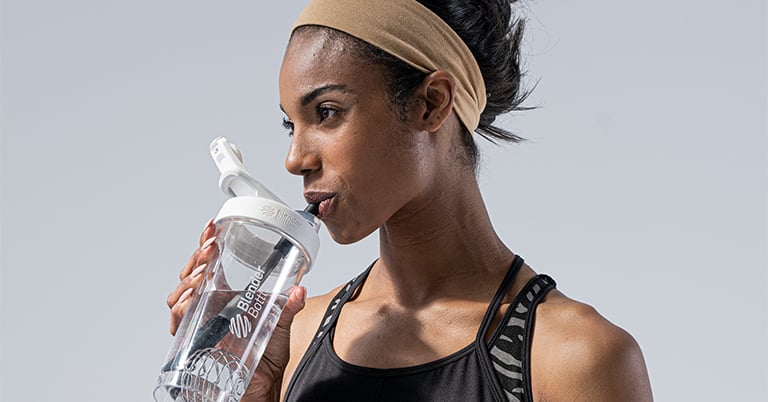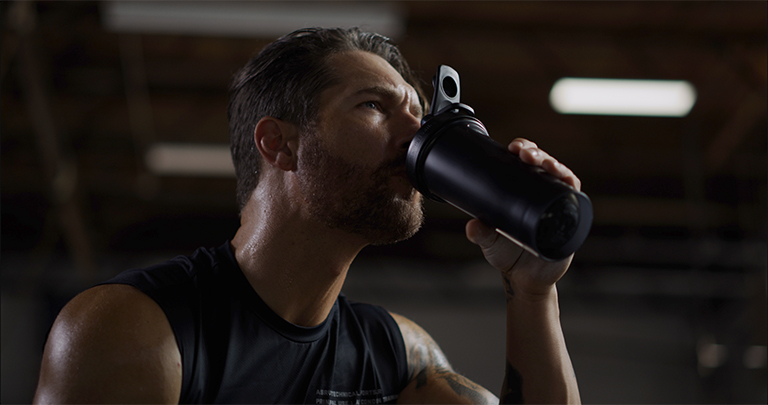Did you know that 75 percent of people in the United States suffer from chronic dehydration? That means that three in four people do not drink the amount of water that their body needs for its day-to-day functions.
And, with chronic dehydration comes weakened muscles, dizziness, slower thought processes, fatigue, poor organ function, cramping, and more.
That's why we all need to know if we're drinking enough water. Drinking water can help us live longer, healthier lives and improve the way our organs function. Good hydration is the foundation that allows us to do our everyday activities.
It's time that you found out just how important staying hydrated is. Keep reading to learn more.
The Benefit of Staying Hydrated and Why Drinking Water Is Important
Up to 60 percent of the human body is composed of water. Your organs need it, your muscles need it, and even your bones need it.
You need water to survive.
Because of its unique chemical properties, water can help with all kinds of functions throughout your body, such as:
- Getting rid of waste
- Controlling perspiration
- Regulating bowel movements
- Maintaining appropriate body temperature
- Lubricating joints
- Protecting tissues
If you don't drink enough water, you can become dehydrated. In turn, your body won't function as well as it should. Even if you only have mild dehydration, you may experience symptoms.
How Water Affects Energy Levels and Brain Function
If you don't drink enough water, your energy and brain function may suffer. Plenty of studies prove this.
One study on dehydration in women found that fluid loss causes unbalanced mood, ineffective concentration, and increased headaches. A study on dehydration in men found that drinking water positively affected fatigue, attention, focus, reaction speed, and short-term memory.
Dehydration also affects physical performance. Even losing one percent of your water weight can harm muscle strength, power, and endurance.
How Water Affects Body Weight
One of the most popular methods for losing weight is drinking more water. People say that it fills you up faster and removes the toxic waste from your body. Plus, some claim that it even boosts metabolism.
Naturally, scientists began conducting studies to get to the bottom of this. And, some found that drinking more water is correlated with a decrease in body weight.
However, some experts believe that this is simply a correlation rather than a causation. It may be that those who drink more water also don't drink soda. Or, it could be that those who drink more water work out more.
Either one of these could greatly skew the results of the study.
Unfortunately, there isn't a definitive answer on how water affects body weight. But, experts do believe that replacing sodas and juices with water can have a positive effect on our weight and our health.
How Water Prevents Health Problems
As you know, drinking enough water helps our bodies function properly. It stands to reason, then, that proper hydration can have a positive impact on certain health problems.
By increasing water intake, you can prevent constipation, urinary tract infections, kidney stones, and more.
You can also reverse any skin dehydration that you may have, whether it's from a chronic illness or systemic dehydration. Drinking more water will help hydrate your skin.
Overall, water helps your body function better. You'll notice differences in all aspects of your health when you stay well hydrated. And, you may be able to ease symptoms of some conditions and illnesses by drinking up.
How Much Water Should I Drink?
The amount of water that you should drink depends on several factors. Many experts agree on the baseline amount of fluid that women and men should intake daily:
- 11.5 cups, 2.7 liters, or .71 gallon for women
- 15.5 cups, 3.7 liters, or nearly 1 gallon for men
However, this isn't the amount of plain water that you should drink. You may get up to 20 percent of your water intake from other fluids and foods.
There may also be other factors to consider when calculating your water intake. Click here for a more in depth look at how much water you should drink each day.
When Should I Drink More Water Than Usual?
Depending on your lifestyle, you may need to drink more water than the average person.
If you live in a hot or humid climate, you'll need more water. Likewise, those living at high altitudes need to take in more water.
And, you should drink more water in the hotter months since you're likely perspiring more, and thus losing more water from your body. This is especially true if you spend a lot of time outside in the heat, or even in cooler months if you're in a heated room.
Your diet also affects water intake. You may need to drink more water if you eat a lot of spicy, sugary, or salty foods. You should also drink more water if you drink a lot of coffee or don't eat enough fruits and vegetables.
If you're extremely active, you need to drink more water. Whether you run, walk, lift weights, or stand, you lose more water than someone who is sedentary at a desk. The more active you are, the more fluids you need.
If you work out in the summer, you need to take extra precautions. Often, athletes don't account for the heat outside and suffer lightheadedness due to dehydration.
Those who have pre-existing health conditions may also need to take in more water. If you have diabetes or take diuretic medications, you should take in more water to help your body reach equilibrium.
If you're acutely ill with something like vomiting or diarrhea, you should also drink extra water. You're likely losing a lot of fluids to your symptoms, so you need to replenish your body to boost its functioning and help fight off the illness.
Lastly, women who are pregnant or breastfeeding should drink more water. A woman loses water to her baby through the umbilical cord and through her breast ducts. She needs to drink enough to support both herself and the baby.
How Do I Know if I'm Drinking Enough Water?
Calculating the exact amount of water that we need to take in is difficult. But, there are a few signs that can help you see whether or not you're taking in enough water for your body.
First, think about how thirsty you feel on a regular basis. If you constantly feel the urge to drink something, you probably need to ingest more water throughout the day.
You should also look at your urine output. If your urine is light yellow or clear, you're likely taking in enough water for your bodily functions. However, if you have dark urine, you should reach for that water bottle more often.
If you're still unclear on how much water you should be drinking, talk with a physician or a dietician. They can help you determine how much to drink based on your activity level, diet, and physical and environmental factors.
Overall, it's a good rule of thumb to drink water at certain times throughout the day:
- With every meal that you eat
- Between meals
- Before, during, and after exercise
- When you feel thirsty
When in doubt, take a sip of water. It's likely that your body is thirsty for it if you've had a mentally or physically exhausting day.
Can Other Fluids Count Towards My Daily Water Goal?
You don't have to drink a gallon of water a day to keep your body hydrated. Yes, you may get most of your water intake from plain water, but there are plenty of other fluids and foods that help, too.
Drinks like coffee and tea can help increase your water intake, even though caffeine is a mild diuretic (just don't go overboard with caffeinated drinks). Many foods also contain water, including meats, fish, eggs, fruits, and vegetables.
All of the water that from these beverages and foods counts towards your daily water intake. So even if you feel like you're not drinking enough plain water, you may be getting more fluids than you think.
Can You Drink Too Much Water?
It is possible to drink too much water. But, it's rarely a problem for healthy adults.
However, some athletes experience this problem when trying to stay hydrated during training.
If you do happen to drink too much water, it can become overwhelming for your kidneys. Your kidneys are the organs responsible for pulling toxins out of your urine. If there is too much water to process, your kidneys won't be able to manage it all, in which case the water remains in your system. This causes your blood to become diluted.
Specifically, too much water can cause the sodium content in your blood to decrease. This is called hyponatremia and can be life threatening.
Elderly individuals are most likely to get hyponatremia. Others at risk for the condition include those who take diuretic medications, exercise intensely, or have pre-existing medical conditions. Here are some symptoms of hyponatremia to watch out for:
- Nausea
- Vomiting
- Headache
- Confusion
- Muscle weakness
- Muscle spasms
- Cramping
- Seizures
- Restlessness
- Lack of emotional regulation
- Fatigue
- Drowsiness
If you or someone you know is experiencing these symptoms and you suspect hyponatremia, seek medical attention immediately.
Should I Drink a Gallon of Water a Day?
You probably only need to drink a gallon of water a day if you exercise intensely every single day. Even then, the water that you get from other fluids and food may be enough to keep you from having to drink an entire gallon of pure water.
If you're unsure whether you're hydrating properly, talk to your doctor. They can test your sodium levels to see if you're getting enough water into your system. Then, you can make adjustments as needed.
When Should I Drink Water?
If you feel thirsty, drink water. If you're not thirsty, don't.
Even though it sounds simple, it's sometimes easier said than done—but thirst is the best indicator that your body needs more water.
If you have trouble paying attention to your thirst, try focusing on these factors instead:
Do your muscles ache? Do you have a headache? Did you just finish a run?
By all means, drink up!
It's important to recognize these signs of thirst and/or dehydration. Many people do struggle with listening to their bodies, however—which is why it's important to hydrate throughout the day at regular intervals. To make this easier, you should always keep a bottle of water close by. Try making a habit of drinking before meals, after meals, and throughout any exercise.
Getting the Right Hydration Gear
Now that you're better educated about the importance of hydration, ask yourself if you drink enough water. Do you think the amount of fluids that you take in every day is enough to sustain everything that your body needs to accomplish?
Whether you already drink enough or you feel like you need to drink more, we have you covered with our hydration gear. You can try the Halex Insulated bottle during your bike rides, runs, or cardio workouts. Our Koda water jug holds enough water to get you through even the longest training sessions and work days. Plus, it's leakproof, easy to carry, and comes with measurement markings to help track your fluid intake.
Take sips throughout the day, each day, and you'll feel healthier and better hydrated in no time.



Leave a comment
All comments are moderated before being published.
This site is protected by hCaptcha and the hCaptcha Privacy Policy and Terms of Service apply.